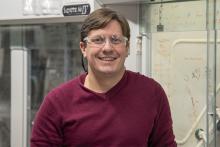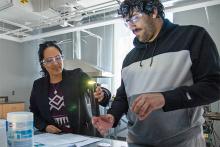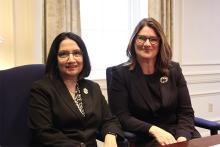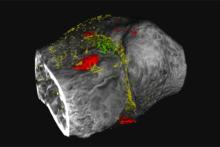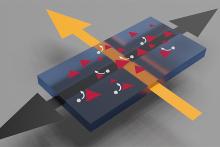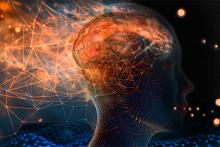To enhance biosensor development via artificial intelligence (AI) and offer STEM education opportunities to K-12 students from underserved communities, the U.S. National Science Foundation recently awarded researchers at Penn State a three-year, $1.5 million grant.
Robert Hickey, assistant professor of materials science and engineering, is co-leading a five-year, $4.5 million Multidisciplinary University Research Initiative grant to use light energy to create high-performance ceramic materials at lower temperatures than previously possible.
Elizabeth “Libby” Kupp, who retired as an associate teaching professor from Penn State in 2022, established the MatSE Safety Fund.
Penn State has named Morgan Advanced Materials, a global manufacturer of ceramics and carbon materials, as its 2024 Corporate Partner of the Year.
Researchers developed novel contrast agents that target two proteins implicated in osteoarthritis, a degenerative joint disease commonly characterized as wear-and-tear arthritis.
Penn State’s Cocoziello Institute of Real Estate Innovation has awarded its inaugural seed grants. John Mauro and Seth Blumsack are among the recipients.
The Hall effect, has revealed some new tricks, which has potential implications for understanding fundamental physics of quantum materials and developing applied technologies such as quantum communication and harvesting energy via radio frequencies.
“LionGlass” will be the subject of PSAA Presents: EMS Showcase, an event hosted by the College of Earth and Mineral Sciences in partnership with the Penn State Alumni Association.



